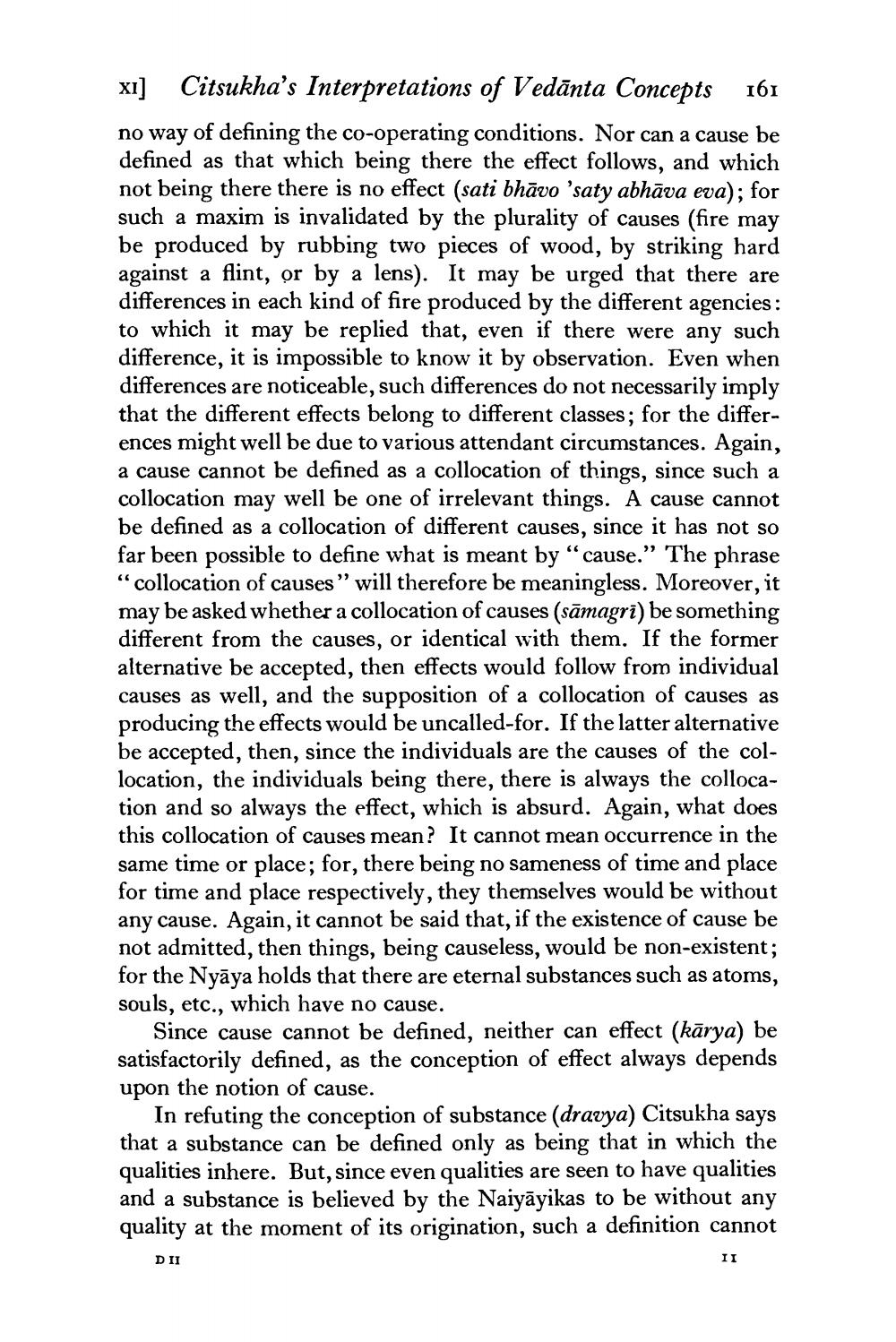________________
x1] Citsukha's Interpretations of Vedānta Concepts 161 no way of defining the co-operating conditions. Nor can a cause be defined as that which being there the effect follows, and which not being there there is no effect (sati bhāvo 'saty abhāva eva); for such a maxim is invalidated by the plurality of causes (fire may be produced by rubbing two pieces of wood, by striking hard against a flint, or by a lens). It may be urged that there are differences in each kind of fire produced by the different agencies: to which it may be replied that, even if there were any such difference, it is impossible to know it by observation. Even when differences are noticeable, such differences do not necessarily imply that the different effects belong to different classes; for the differences might well be due to various attendant circumstances. Again, a cause cannot be defined as a collocation of things, since such a collocation may well be one of irrelevant things. A cause cannot be defined as a collocation of different causes, since it has not so far been possible to define what is meant by “cause.” The phrase “collocation of causes" will therefore be meaningless. Moreover, it may be asked whether a collocation of causes (sāmagri) be something different from the causes, or identical with them. If the former alternative be accepted, then effects would follow from individual causes as well, and the supposition of a collocation of causes as producing the effects would be uncalled-for. If the latter alternative be accepted, then, since the individuals are the causes of the collocation, the individuals being there, there is always the collocation and so always the effect, which is absurd. Again, what does this collocation of causes mean? It cannot mean occurrence in the same time or place; for, there being no sameness of time and place for time and place respectively, they themselves would be without any cause. Again, it cannot be said that, if the existence of cause be not admitted, then things, being causeless, would be non-existent; for the Nyāya holds that there are eternal substances such as atoms, souls, etc., which have no cause.
Since cause cannot be defined, neither can effect (kārya) be satisfactorily defined, as the conception of effect always depends upon the notion of cause.
In refuting the conception of substance (dravya) Citsukha says that a substance can be defined only as being that in which the qualities inhere. But, since even qualities are seen to have qualities and a substance is believed by the Naiyāyikas to be without any quality at the moment of its origination, such a definition cannot
II
DII




